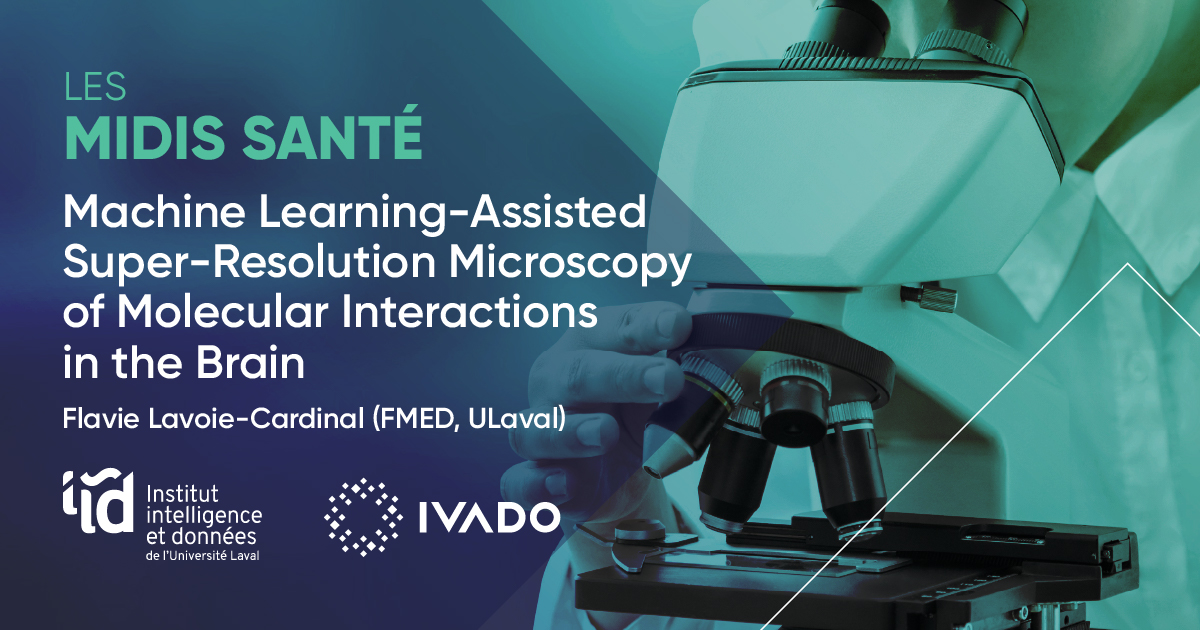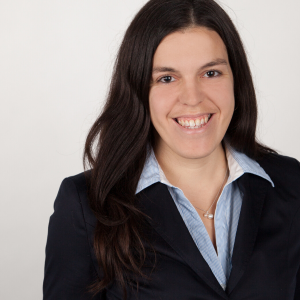
Machine Learning-Assisted Super-Resolution Microscopy of Molecular Interactions in the Brain
As part of the Midis-Santé of IID and IVADO, Professor Flavie Lavoie-Cardinal, from the Faculty of Medicine of Université Laval, offers this presentation on the use of machine learning for the analysis of molecular interactions in the brain using super-resolution microscopy.
Presentation Abstract
Studying the molecular mechanisms underlying synaptic transmission in the brain is challenging in part because synapses are tiny (less than a micron), exhibit a wide range of shapes and internal structures, undergo activity-dependent plasticity, and their molecular components are dynamic.
To better understand the mechanisms responsible of the onset of neurodegenerative disorders we must be able to observe the molecular dynamics and interactions of synaptic proteins at their scale: the nanoscale. We use quantitative super-resolution microscopy techniques to characterize molecular interactions inside neuronal cells with unprecedented spatiotemporal resolution.
These techniques come with several layers of complexity in their implementation. This has limited their adoption as well as their adaptability to multi-color, multi-modal, and long-term imaging in living neurons. Developing machine learning (ML) assisted frameworks for optical nanoscopy allows real-time optimization of multi-modal live-cell imaging at the nanoscale as well as for quantitative high throughput image analysis. We develop ML-assisted microscopy to characterize activity-dependent remodelling of neuronal proteins.
Our ML approaches not only automate image analysis but also enable multi-dimensional analysis of synaptic nanostructures and of the heterogeneity of the synapse population.
Speaker Bio
Assistant Professor, Faculty of Medicine, Université Laval
Canada Research Chair on Intelligent Nanoscopy of Cellular Plasticity
Research Thrust Leader: Health and Life Sciences, IID
Flavie Lavoie-Cardinal received her Bachelor’s, Master’s and Ph.D. degrees in Chemistry from the University of Siegen in Germany. She was then a postdoctoral fellow (between 2011 and 2014) in Biophysics in the laboratory of Prof. Stefan W. Hell (2014 Nobel Prize in Chemistry) where she worked on the development of super-resolution microscopy. She pursued her research in biophotonics for a second post-doctoral fellowship in the laboratory of Prof. Paul De Koninck in Biophotonics between 2014 and 2017, devoted to the application of super-resolution to cellular and molecular neurosciences. In 2017 she was an independent researcher at the CERVO center and an Associate Professor in the Department of Physics, Genetics, Physics and Optics at Université Laval.
Dr. Cardinal has established a research program that uses and develops machine learning and deep learning for microscopy. Her projects focus on improving the performance of microscopy techniques and developing techniques for quantitative analysis of the images obtained.
Let’s keep in touch!
Would you like to be informed about IID news and activities? Subscribe now to our monthly newsletter.
